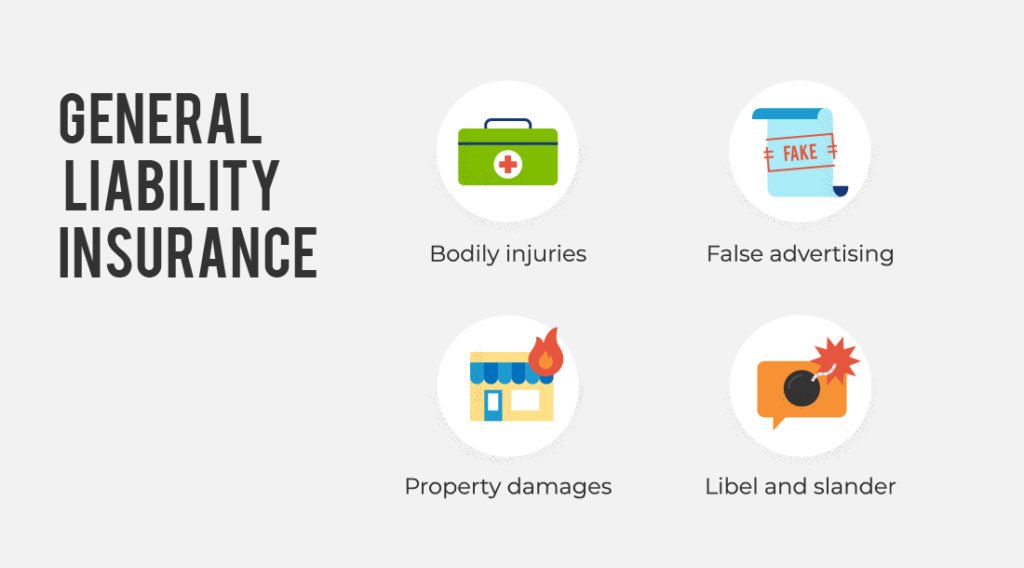Workers Compensation Insurance – Protect Your Business From Lawsuits
Workers compensation insurance is a type of insurance that covers injuries and illnesses that occur on the job. It is a legal obligation that covers the employer’s monetary obligations for employees who suffer injuries or illnesses while on the job. It covers all legal costs that may arise from employee lawsuits. However, there is a limit on how much an employer can pay out under workers comp insurance. Workers compensation insurance covers both employers and employees against lawsuits.
Work-related injuries and illnesses are covered by workers’ compensation insurance
Workers’ compensation insurance pays for medical bills and replacement wages when an employee sustains an injury or illness at work. The insurance also covers occupational diseases and cumulative injuries. It can be difficult to prove a work-related injury or illness, however, as the rules for eligibility vary by state. For example, a medical condition acquired from being exposed to chemicals on the job may not be covered under workers’ compensation.
This type of insurance pays for medical expenses related to work-related injuries and illnesses. Injuries can cause serious problems requiring days off work to recover. It can also result in permanent disability or even death, requiring workers to stop work altogether. Workers’ compensation insurance covers these costs and provides partial reimbursement for lost wages. Generally, payments are made based on a pre-determined schedule.
Although workers’ compensation insurance is important, it doesn’t cover accidents outside of work. For example, if an employee is injured while intoxicated or intentionally injures themselves, workers’ comp may not cover their injuries. However, it can cover hospital and doctor’s bills related to work-related injuries and illnesses. Workers’ compensation insurance can also pay for prescriptions and emergency room visits.

There are several requirements for filing a claim under the workers’ compensation system. The injured worker must file a report of the injury within 30 days, appeal an impairment rating within 90 days, and file the formal paperwork for a workers’ compensation claim within one year of the incident. However, these requirements are more stringent than they used to be, so the injured worker should understand their rights and responsibilities under the workers’ compensation system.
Work-related injuries and illnesses are covered by this insurance policy, so employees should seek medical attention as soon as possible after an accident. Additionally, they should notify their employer immediately if they are injured. When filing a claim, an employer must contact the workers’ compensation insurance provider and state workers’ compensation board. The insurance company will review the claim and provide benefits if they approve the claim. This is the most effective way to ensure that your company is compliant with workers’ compensation laws.
The premiums for a workers’ compensation insurance policy depend on a variety of factors. The location of the business also plays a part in the premiums. Some insurers consider the risk of a business by looking at the number of accidents and other catastrophes in an area. Therefore, premiums may be higher in those areas of high risk. In addition, if an employer has a long claim history, it is eligible for an experience rating that will adjust premiums accordingly. This will ensure that the premiums are lower for employers who are paying lower premiums.
In order to receive compensation benefits, injured workers must notify their employers of their occupational injury or illness as soon as possible. Failing to do so can result in a delay in receiving benefits. Furthermore, if the injury is serious and requires medical attention, an employer must investigate the claim within 30 days, or they may lose their rights to workers’ compensation insurance. If the injury is not reported within the specified time, the insurance carrier will select a medical professional to conduct an independent medical examination. This report will be used by the insurance company to come up with a compensation offer.
It protects employees from lawsuits

Worker’s compensation insurance is essential for protecting your business from costly lawsuits. If an employee suffers an injury or dies on the job, they can file a lawsuit against you and demand damages. An uninsured business owner could face criminal investigations and legal penalties. Regardless of how small your company is, you should get this insurance as soon as possible. Workers compensation laws are regulated by state governments.
The state workers compensation laws differ slightly from state-to-state. In some states, injuries that occur while violating company policy or engaging in horseplay are not covered by workers’ compensation. However, state laws often provide special rules for claims filed after a worker is terminated. Despite these limitations, workers’ compensation laws do not protect employers from all lawsuits. In some states, employees are allowed to file private lawsuits after a workplace accident, but they must prove their employer was negligent.
Employers are legally responsible for providing a safe workplace for their employees. By purchasing workers’ compensation insurance, businesses can be protected from lawsuits from injured workers. This insurance will ensure that injured workers receive medical care and compensation for lost wages. Additionally, it protects employers from lawsuits from injured employees. Employees can also receive death benefits if an accident causes their death. Workers’ compensation insurance is also essential to the safety of your company.
Although workers’ compensation insurance is not mandatory for small businesses, you can still get free quotes from top insurers. It is also important to remember that the laws and regulations on workers compensation policies change frequently. For specific information about your state’s laws, consult your state’s Department of Labor. There are also several resources available online to help you understand how it affects your business. There’s a free online tool that can help you compare the rates of workers compensation insurance in your state. With 3 minutes, you’ll know the current rate of workers’ compensation insurance and have a better idea of what is required for your business.
Employers without workers compensation insurance risk having their employees file lawsuits against them if they’re injured on the job. This insurance protects employers and employees from financial liability, which can range anywhere from a lawsuit to fines. Furthermore, it shows your employees that you care about them and want to protect them from harm. By providing workers compensation insurance, you’ll be able to help injured employees pay medical expenses and replace lost wages.
In addition to preventing employee lawsuits, workers compensation insurance covers your business from third-party oversuits. In some cases, employees can sue their employers for loss of consortium or other damages. If you’re the manufacturer of a product, you can also be sued as a manufacturer. Workers compensation insurance protects you from these lawsuits and more. If you’re considering purchasing this insurance, take a look at the benefits it provides.
It provides financial protection for injured workers
Workers compensation insurance is a type of insurance that protects employers from being sued by injured workers. It pays for medical and wage benefits for injured employees and is mandated by law in most states. Workers’ compensation is considered social insurance because it relies on a social contract between employers and employees. While it protects the business owner from civil suits, it also protects the injured worker. The policy is purchased by businesses and is underwritten by insurance companies or by publicly supported state funds.
Workers compensation insurance covers injuries that happen while on the job. It will cover the cost of medical care, lost wages, and even burial expenses. The policy also covers benefits for the injured worker’s family. However, the policy excludes certain kinds of injuries, such as those that occur while an employee is playing around, intoxicated, or participating in activities off the job. It also excludes certain injuries resulting from an “act of God.”
This system was put into place more than a century ago, and it has been described as a “grand bargain” between employers and workers. It reduces the conflicts between business owners and employees and offers benefits regardless of the cause of the injury. Moreover, it protects employers from lawsuits that may arise as a result of workplace accidents. When injured workers are unable to return to work for a period of time, employers must be thorough in communicating their rights and obligations under the system.
It is important to note that in some states, medical treatment will be provided by the employer. For the first 30 days after an injury, the employer will pay for the expenses. However, an employee may choose to get treatment from his/her personal physician if he wishes to. In addition to this, the employer can choose to use a Health Care Organization or a Medical Provider Network for treatment. This way, the employer can avoid paying for treatment if it is not provided by the insurance company.
In addition to paying for medical bills, workers compensation insurance protects employers from liability for lawsuits filed by injured workers. It covers the employer’s statutory obligations and compensates the employee for any injuries. This type of insurance also covers medical expenses and loss of wages. The insurer pays out two-thirds of an injured employee’s monthly salary if the injury is permanent and causes him/her to lose the ability to perform their job. It also provides compensation for dependents of an injured worker.
The costs of a worker’s injury are determined by each state’s rules and regulations. Many states require employers to purchase workers compensation insurance from a state fund, but others let them purchase it from private insurers. If a private insurer refuses to provide coverage, the state funds serve as the insurer of last resort. Depending on the state’s classification code, premiums for the insurance are determined. For example, premiums for a hazardous enterprise may be more expensive than for an accounting firm.

